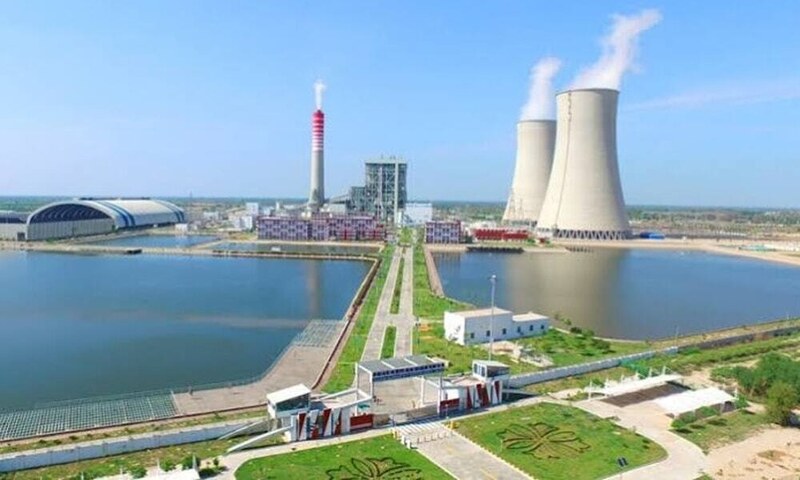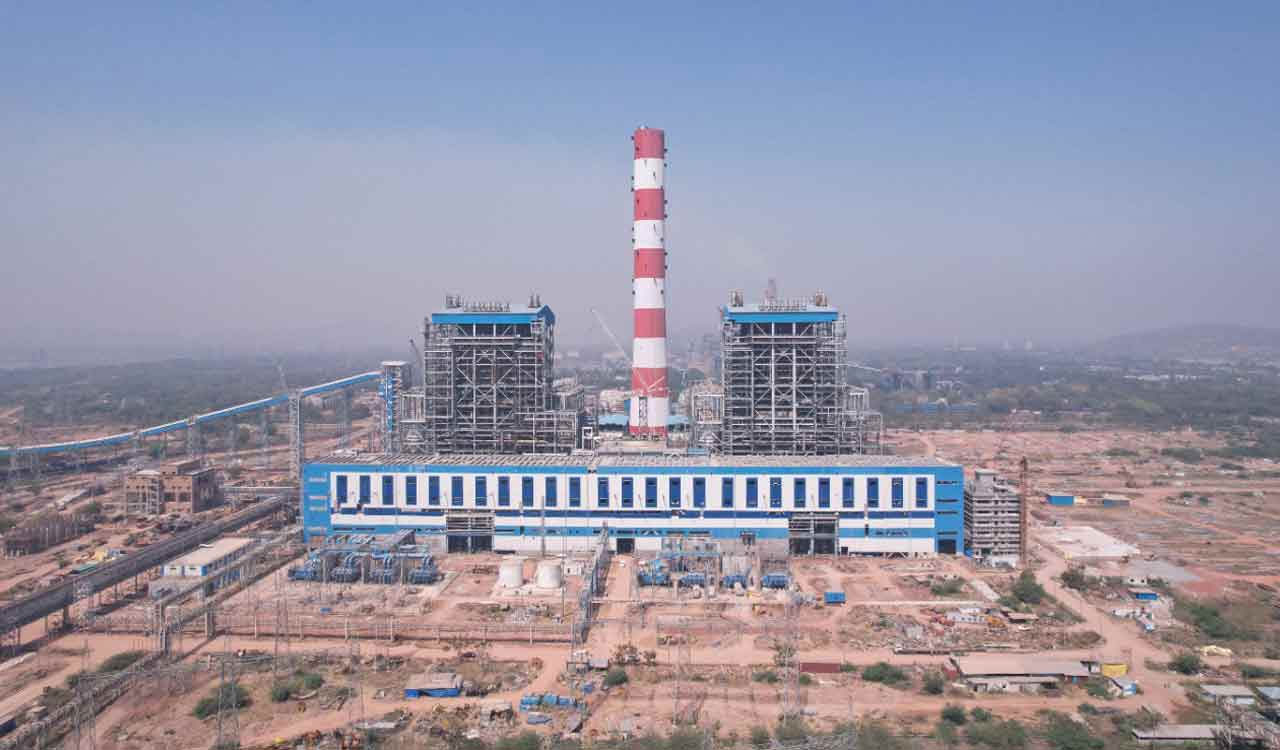By Dr Ikramul Haq | Engineer Arshad H Abbasi
Copyright brecorder

In 2015, Pakistan’s rulers stood before the nation, proclaimed coal, and liquefied natural gas (LNG) plants as “game changers”. The fanfare was loud, the ribbon-cuttings grand, and the speeches triumphant. Yet a decade later, Pakistan stands buried under Rs 5200 billion (US$ 19 billion) in circular debt, crippled by imported fuel dependence, and battered by catastrophic floods that scientists link directly to climate change.
Where does lie the real tragedy? It is in the very ministries/politicians that sang songs of coal and LNG between 2015 and 2018! They are now lamenting and blaming climate change for Pakistan’s suffering. Our Ministers of Planning and Climate Change appear at global forums and on television screens, mourning the floods of 2022 and 2025 as if they were helpless victims of calamity and climate change.
However, history records otherwise. Their policies, their choices, and their promises created the vulnerability they now decry. The question is not whether climate change is real — it is. The question is, who changed the game for Pakistan, and at what cost?
The coal and LNG-fired power projects were marketed as a bold leap forward. Imported LNG terminals were fast-tracked, and coal-fired plants in Sahiwal, Port Qasim, and Hub were inaugurated with patriotic fervour (sic). Speeches by then-ministers of planning and energy, hailed LNG as the “future of Pakistan”! Coal was dressed up as a cheap and secure fuel that would end power shortages forever. The numbers, however, tell a harsher truth.
According to ‘Nepra’s State of the Industry Report 2022’, Pakistan’s power mix had shifted dangerously toward imported fuels: 67 percent thermal (LNG, oil, coal), 29 percent hydro, and less than 1 percent renewables. At the very moment when the rest of the world was pivoting to clean energy, Pakistan doubled down on the dirtiest and most expensive fuels.
The result was devastating. Power-sector emissions surged. According to the Emissions Database for Global Atmospheric Research (EDGAR), Pakistan’s CO2 emissions from power generation doubled between 1990 and 2015 — and then jumped sharply again after the new LNG and coal projects came online. Instead of reducing vulnerability, Pakistan locked itself into high-cost, high-emission, imported fuel dependence.
The financial and environmental consequences have been ruinous. By 2023, Pakistan’s circular debt crossed Rs 5200 billion mark. The so-called “game-changer” plants became millstones around the economy’s neck and environment disaster. Imported LNG prices, pegged to volatile global markets, drained foreign exchange reserves. Coal imports bled dollars we did not have.
The government raised tariffs, but consumers could not pay. The gap between billed revenue and actual recovery widened, feeding into circular debt — a cancer that now strangles the sector. The independent experts estimate that these LNG projects alone inflicted an economic loss of nearly USD 50 billion — one of the most horrific policy blunders in global energy history.
While the nation bled, those who raised the alarm paid a heavy price. When one of us, Engineer Arshad H. Abbasi, warned relentlessly that LNG and coal would be a death sentence for Pakistan’s economy when he wrote policy briefs, op-eds, and letters to prime ministers. He spoke on television, pointing to the evidence. For this, he had to undergo mental and physical torture, and survived multiple attempts on his life — punishment for telling the truth. This is a dark stain not only on Pakistan’s history, but also on the conscience of the global community that now hears our ministers plead for aid.
Here lies the hypocrisy that must be called out. In 2022, when historic floods drowned one-third of Pakistan, our minister for planning stood at international forums demanding climate reparations. The man, who today is the face of climate diplomacy, spoke of Pakistan’s “moral right” to aid. Rewind to 2015–2018, and these same voices glorified coal and LNG. They were not warning of climate change; they were promising salvation through fossil fuels. Their words are on record. The then Petroleum Minister and later Prime Minister of Pakistan, called LNG a “game-changer” and Planning Minister declared coal essential to “Pakistan’s future growth”!
So let us ask plainly, who changed the game? Was it climate change, or was it the reckless policy decisions of Pakistan’s leaders who ignored science, ignored global trends, and mortgaged the nation’s future for short-term political gain?
Pakistan faces the worst floods, droughts, and heatwaves. However, the painful truth is that our own policies have exacerbated our vulnerability. The floods of 2022 and 2025 have not been “solely acts of nature”. The ecological imbalances and climate worsening emanate from a decade of rising emissions, destroyed watersheds, and shortsighted planning. By locking Pakistan into coal and LNG, our leaders directly contributed to the greenhouse gas emissions destabilizing our climate.
To blame only the global community while hiding our own complicity is deceitful. Yes, the world owes Pakistan climate finance (UNFCCC). Nevertheless, Pakistan also owes its people truth and honesty. We cannot cry for climate justice abroad while practising climate injustice at home.
Examples from abroad show the path we could have taken. Costa Rica produces nearly all its electricity from renewables. Norway runs almost entirely on hydropower. New Zealand is phasing out coal completely (NZ Govt Energy Policy). Pakistan had the same opportunities. We sit on one of the best solar belts in the world. We have strong wind corridors in Sindh.
We have vast untapped hydropower potential in Khyber Pakhtunkhwa and Gilgit-Baltistan. Yet instead of harnessing these resources, we shackled ourselves to imported coal and LNG. The irony is that while the state clung to fossil fuels, ordinary villagers showed more wisdom by installing rooftop solar systems, quietly generating power and proving that survival instincts can triumph over elite folly.
The betrayal does not end with floods, debt, or emissions. The cruelest legacy of these policies is written in the suffering of ordinary people. As imported LNG and coal plants locked Pakistan into high tariffs, electricity bills skyrocketed to unbearable levels, plunging nearly 45% of the population below the poverty line.
Families who once survived on meagre incomes found themselves crushed by bills higher than their monthly wages. Fathers could not feed their children. Mothers wept as their homes went dark. In town after town, news emerged of desperate men and women taking their own lives — victims not of fate, but of reckless policy choices dressed up as “game changers”.
This was not simple mismanagement, nor an error to be forgotten. It was the imposition of a burden so crushing that it broke the backs and spirits of millions. It was economic ferocity on a national scale. Moreover, in the moral spirit of international laws — including the Rome Statute of the International Criminal Court — such actions that knowingly inflict suffering on civilian populations must be called to account.
If justice is to mean anything, then those at the helm of affairs, along with those who stood behind this disastrous master plan, should stand before their people and humanity at large. Their decisions set in motion a chain of debt, pollution, poverty, and loss of life. Even now, they seek sympathy abroad while avoiding responsibility at home. Nevertheless, Pakistan’s poor, its farmers, its workers, its children — they deserve justice deeper than speeches or aid packages. They deserve a world willing to name these choices for what they were, and to demand accountability.
Today, Pakistan drowns in both floods and debt. Crops are lost, homes washed away, and our fragile economy shaken. We ask the global community for help — and rightly so. Nevertheless, if we are to demand justice, we must begin by holding our own leaders/bureaucrats accountable.
When the history of this energy crisis is written, these fossil fuel projects will be remembered as the turning point where Pakistan lost its way. Those who sold coal and LNG as salvation must answer for the debt, the emissions, the despair, and the disasters that followed. For it is not enough to mourn the floods of 2022 and 2025 — we must also remember the hollowness of promises made in 2015–2018, and insist that those who “changed the game” finally face its consequences.
Copyright Business Recorder, 2025



